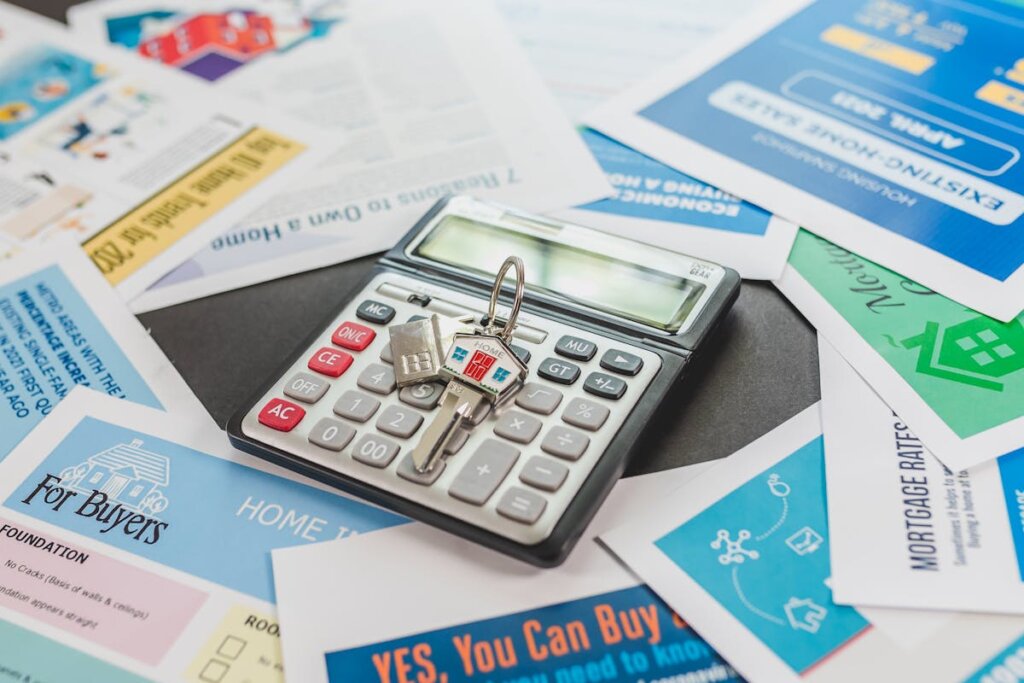
When buying or selling a home, there are many expenses to consider, from agent commissions to inspection fees. One of the most common questions that comes up is who pays property taxes at closing.
The answer is not always straightforward because property taxes are calculated annually or semi-annually, while home sales can happen at any time during the year. To make sure there are no surprises at the closing table, both buyers and sellers should understand how these taxes are divided and handled.
How Property Taxes Work
Property taxes are assessed by local governments, usually at the city or county level, based on the value of the home. These taxes fund schools, public safety, road maintenance, and other essential services in the community.
Homeowners typically pay them once or twice a year, though some areas allow quarterly payments. Because taxes are tied to the calendar year, selling a home midyear creates a need for adjustments between the seller and buyer.
If taxes are already paid for the year, the seller may be entitled to reimbursement for the portion of the year the buyer will own the home. On the other hand, if taxes are due after the closing date, the seller must compensate the buyer for their share of the time they lived in the property. This adjustment is called prorating, and it ensures both parties pay only for the time they owned the home.
Who Pays Property Taxes at Closing?
The short answer is that both the buyer and seller have a role. Sellers are responsible for property taxes up to the closing date. Buyers take on the responsibility from the day they become the new owners. At closing, the settlement statement accounts for this division, so no one pays more or less than their fair share.
For example, if closing happens in September and the annual property tax bill is due in December, the seller will need to cover January through September. The buyer will be responsible for October through December. This ensures the tax payment reflects the time each party owned the home.
Why Proration Is Important
Without proration, the seller could end up paying taxes for a period when they no longer own the home, or the buyer might cover months when they did not have possession. By prorating, the closing attorney or title company ensures fairness. These adjustments are outlined in the closing documents so both parties clearly see how the numbers were calculated.
Proration also prevents disputes after closing. Since property taxes are a significant expense in many areas, leaving this issue unresolved could cause financial strain or legal conflict. By handling it during the closing process, both sides can walk away knowing the obligation has been fairly split.
Regional Variations in Property Tax Payments
It is important to note that the rules about who pays property taxes at closing can vary slightly by state or even county. Some areas require sellers to pay all taxes upfront before the transfer of ownership, while others stick to prorating.
In Connecticut, for instance, sellers must pay property taxes for the portion of the year they owned the home before closing. Buyers take over immediately after closing, and attorneys typically handle the final calculations to ensure accuracy.
Elsewhere, the timing of tax due dates plays a role. If taxes are paid in arrears, meaning homeowners pay for the previous year, the prorations will reflect this difference. Buyers in those states may find themselves reimbursing the seller at closing for taxes already paid.
How Buyers Can Prepare
For buyers, it is wise to ask early in the process about how property taxes will be handled. Review the settlement statement carefully to confirm that prorations are included and accurate. Buyers should also set aside funds for their portion of the taxes due shortly after closing.
Mortgage lenders often include estimated property tax payments in monthly escrow accounts, but at the time of purchase, the buyer may need to pay additional amounts to set up this escrow.
Understanding the local property tax rate is also essential for long-term budgeting. In Connecticut, for example, the average rate is around 1.96 percent of assessed value, nearly double the national average. That means property taxes can make up a significant part of monthly housing costs.
How Sellers Can Prepare
Sellers should verify that all outstanding property tax bills are current before closing. Any unpaid taxes will appear during the title search and must be settled before the sale is finalized. Sellers should also budget for their prorated portion at closing, which may reduce the net proceeds from the sale.
If property taxes were paid in advance, sellers should make sure they receive a credit from the buyer for the period after closing. For example, if the seller paid a full year’s taxes in January and the home sells in June, the buyer must reimburse the seller for July through December. This prevents the seller from effectively paying taxes on a home they no longer own.
The Role of Attorneys and Title Companies
Closing agents, whether attorneys or title companies, handle the calculations and documentation related to property tax proration. They review tax records, determine the exact daily rate, and divide the bill based on the closing date. Their role ensures accuracy and fairness. Buyers and sellers should review these figures closely but can trust that professionals have applied the correct formulas.
These professionals also ensure compliance with state and local laws. Since property tax rules vary, having an expert handle the process protects both parties from errors that could delay closing or create financial disputes later.
Final Thoughts on Property Taxes at Closing
So, who pays property taxes at closing? The answer is both. Sellers cover their share up until the closing date, and buyers take over immediately afterward. This system, managed through prorations, ensures that everyone pays only for the time they owned the property. While the exact process may differ by location, the principle of fairness is consistent across states. Also, check out this no-obligation cash offer for your home. You can even sell your house fast in Bridgeport, CT.
By preparing early, reviewing settlement statements carefully, and working with knowledgeable professionals, both buyers and sellers can avoid surprises. Property taxes are a major part of homeownership, and handling them correctly at closing sets the stage for a smooth transition from one owner to the next.

